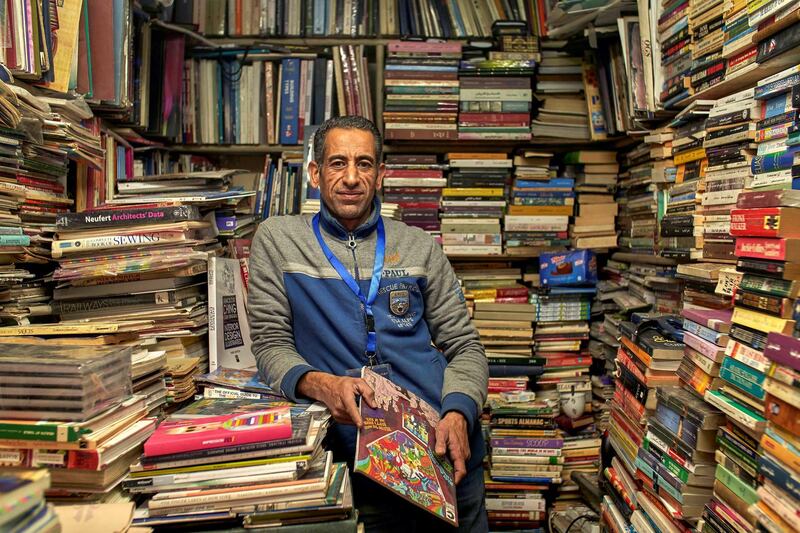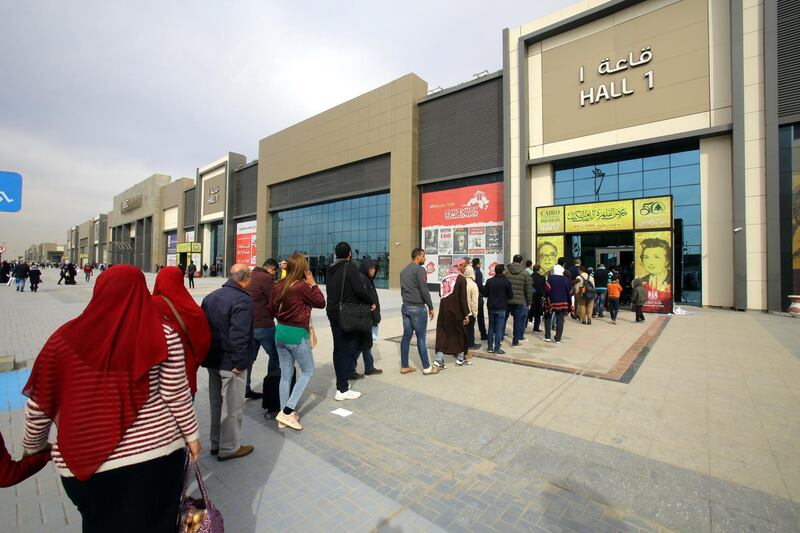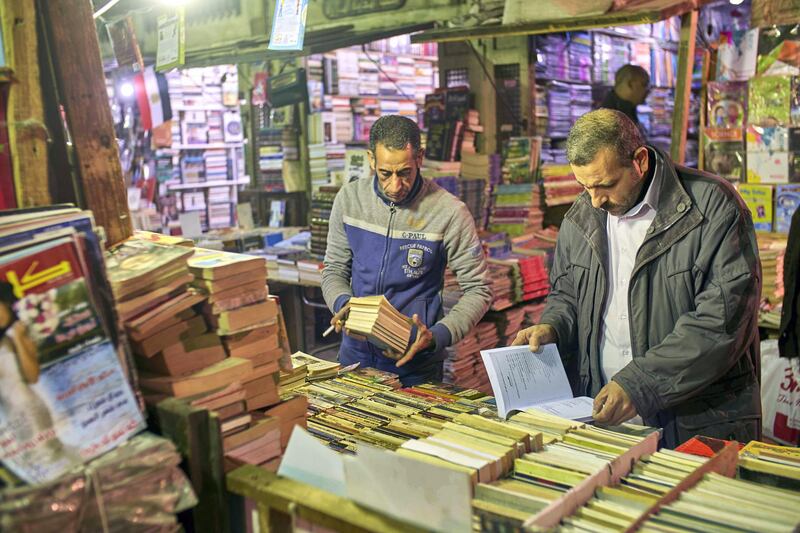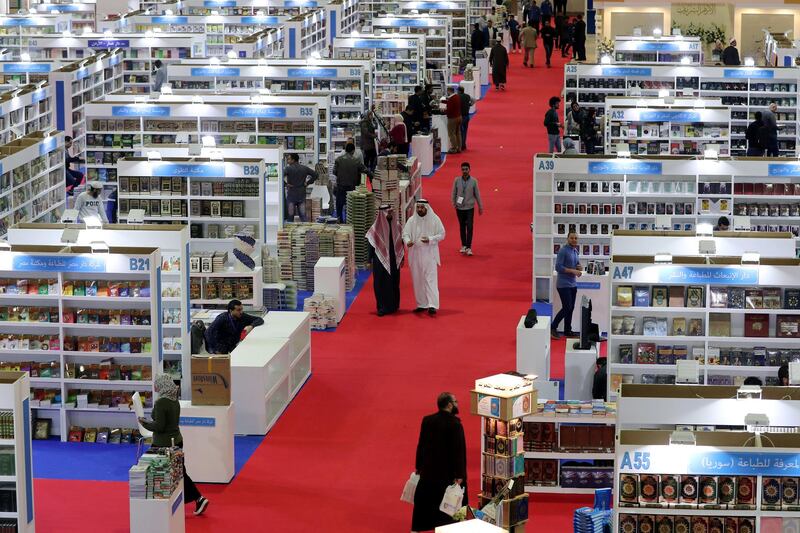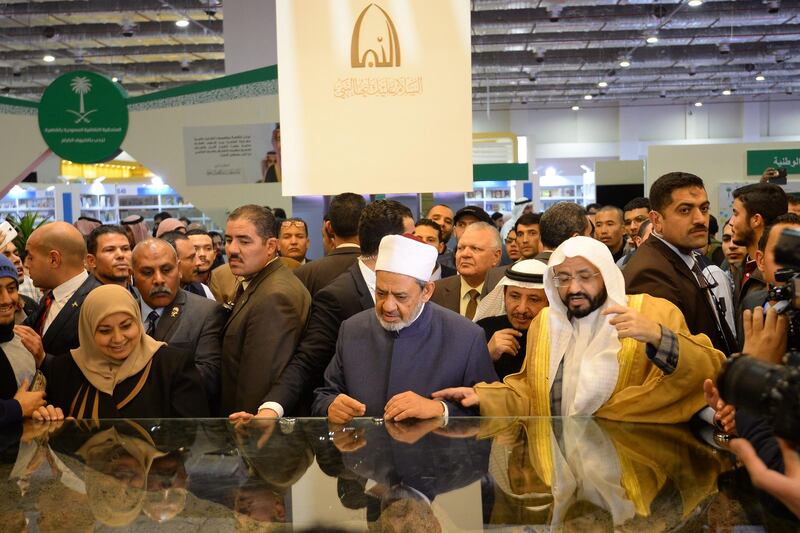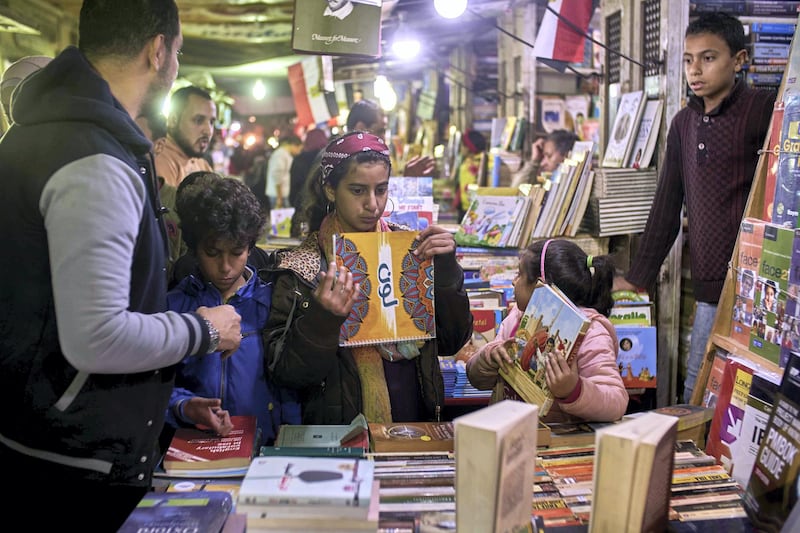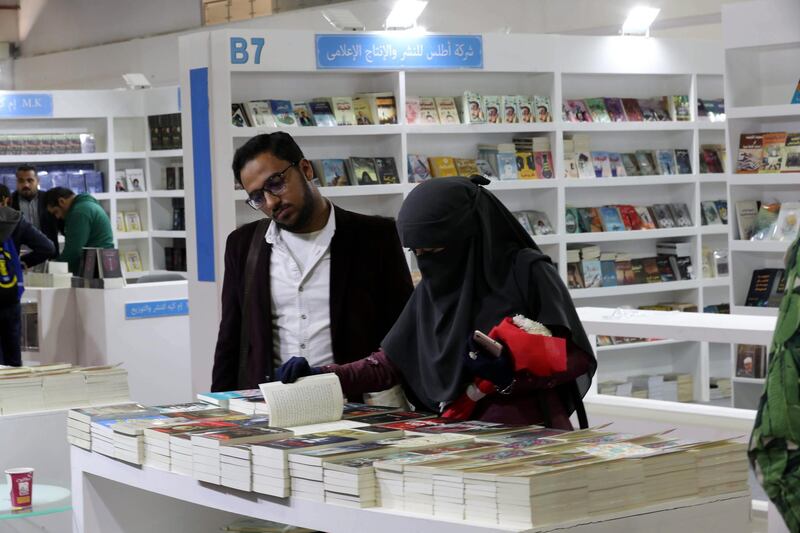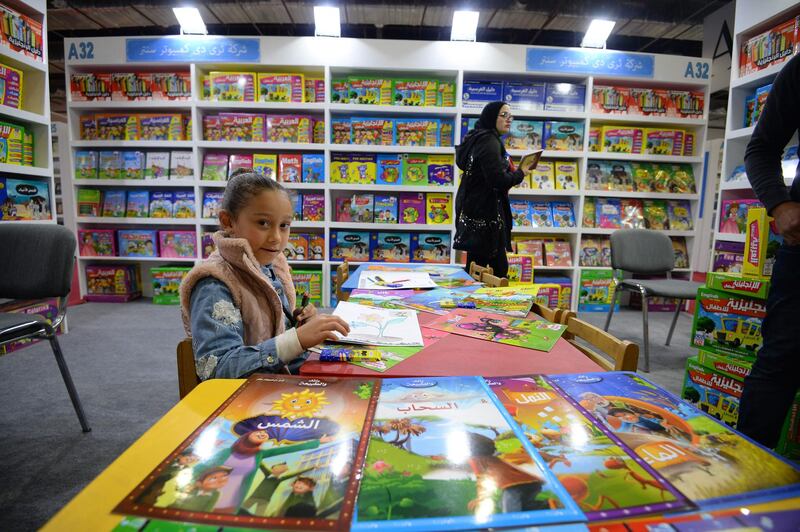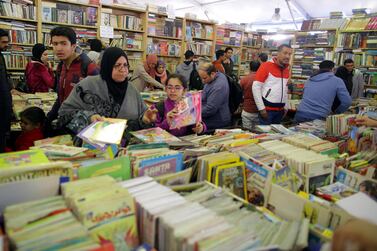Books by one of Egypt's most celebrated novelists, Naguib Mahfouz, are piled on top of works by Brazilian author Paulo Coelho, with chemistry textbooks and lifestyle magazines from the 1960s also stacked shoulder high, amid a collection of Rubik's cubes and knock-off Mo Salah shirts.
Within this controlled chaos, hundreds of book-lovers hunt for bargains and rare manuscripts. This is Cairo's beloved, century-old second-hand book market, Soor El Azbakeya, in downtown Cairo's Attaba district.
However, there is disappointment among some of the vendors, who were either not invited to the Cairo International Book Fair, which opened last week, or were told that the fee to participate had increased.
New changes this year
In the past, the annual book fair was held in the suburban Nasr City in north-eastern Cairo, but for its 50th event, the fair moved to a gleaming, new venue in the upmarket Tagamoa El Khamis, a satellite suburb, away from the buzzing metropolis and its 19.5 million inhabitants.
The fair typically draws crowds from afar due to its immense size – the new venue hosts 748 publishers, with 723 sections arranged over 45,000 square metres. But this year, while seeking to reinvent itself in the new location away from the dusty fairground of past years, organisers chose not to invite many of the vendors from Soor El Azbakeya.
"We are upset because we have been participating for years, and then, all of a sudden, we are told the terms of participation have changed," says Ahmed Abdel-Fattah, one of the many second-hand booksellers not attending the fair this year.
These merchants played an important role in the Cairo International Book Fair in past years, offering cheap, rare or even out-of-print novels, textbooks, maps and magazines for those unable to afford brand-new books. But of those 118 vendors, only 33 were told they could participate at the event this year, and that the price to rent space had increased.
The cost of the new fair, both in terms of the price of books and transportation to the event, has also drawn criticism from the public. Travelling to the fair by microbus – a common form of budget transport in Cairo – from Ramses Square, costs 10 Egyptian pounds (Dh2) and takes about 30 minutes to reach the fairgrounds. It is a steep price hike, relatively speaking; there is a metro station close to Nasr City, so visitors never had to pay more than two Egyptian pounds to get to the old site of the fair from any metro station in the city.
Advocates for the change of location say that it is justified, and that the government has put in a great deal of effort to provide cheap transport options for those who wish to attend, capping the maximum price at 15 Egyptian pounds.
The rise in costs associated with the event may seem small, but the floating of the Egyptian pound in 2016 at one point led to hyperinflation as high as 30 per cent, while the cutting of government subsidies for many essential services has put great pressure on the cost of living for many people.
Successful turnouts
But Sara Allam, a participating author and member of the media committee of the book fair, tells The National that it is clear the event is still accessible, judging by the crowds. "The Ministry of Culture has set limits on some of the books they are selling – they range between three and 10 Egyptian pounds, which is less than half a dollar and most people who come can afford this," she says. Allam says that some books, such as those from Lebanon, for example, were pricier due to import taxes.
Karam Youssef, the founder and publishing director of Al Kotob Khan – which had a book included in the long list for The International Prize for Arabic Fiction this month – argues that the continuing success of the festival has been its diversity, and that this year was no different.
"I'm excited, there are different types of people here, young and old. As you can see, it's quite busy," she says.
For writers and publishers, the festival provides the chance to network. "This is an opportunity for writers to meet the Egyptian publishers, and we also meet the Arab publishers and purchase from them, and they purchase books from Lebanon, Jordan, Morocco, and the Gulf area," Youssef says.
How book buyers benefit
The fair is also important professionally for many buyers. Ahmed, a professor of architecture at the Arab Academy for Science and Technology, says he comes to the fair to find books for his faculty. He says state publisher Al Ahram and the American University in Cairo Press are the best, in terms of variety and quality.
But he laments the exclusion of many of the second-hand booksellers from the fair. "They are very important because they have collections that aren't available elsewhere and they are cheap," he says.
Taha, a student at business school, echoes that sentiment. He has attended the Cairo International Book Fair for many years, but was disappointed that most of the second-hand sellers were not attending. Instead, he says, to save money he will only go to Soor El Azbakaya.
Mohamed AboulGhar, a doctor and political activist, is a stalwart the festival, having attended all but a couple over the years. "We were a bit shocked at first at the change of the location of the festival – we thought it would create a problem for people," he says. "There are no booklets, either, and it took me a long time to find the stands I wanted. But it's clean … no more dust. It's a real book fair."
But Abdel-Fattah, as well as many of his colleagues, will not benefit from the new-look festival in Tagamoa El Khamis. Before, they had access to tens of thousands of Egypt's literature-lovers at the country's biggest book fair, people who might otherwise balk at the idea of visiting the sprawling, maze-like second-hand market of Soor El Azbakeya.
Speaking of the festival, Abdel-Fattah adds: "It's an important chance for us to make new customers and reach an audience that we aren't really used to getting here [at the market]."
Cairo International Book Fair runs until Sunday
